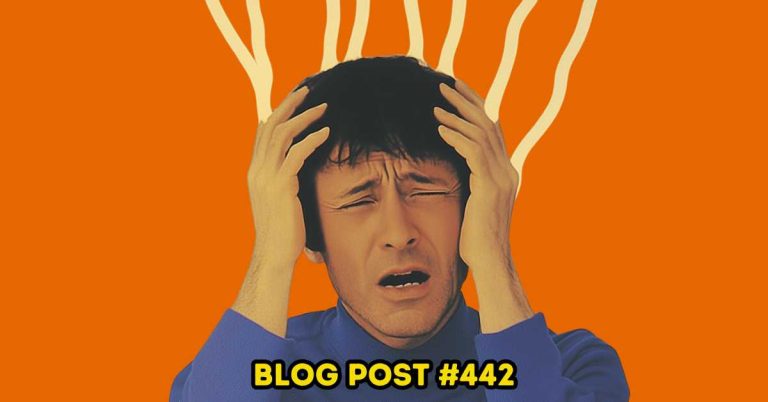
One of my close friends is constantly joking about existentialism and how everything seems to just fall into it. It’s a great joke until you realize that it’s not, which is probably an even bigger joke.
Thinking about this, I wrote an Instagram story saying that “the biggest joke is life,” and immediately I got a lot of messages asking if I was alright. I mean, who posts that? Only people who are seriously disturbed by life, to the point of needing an intervention. And the rest of us just go along with the motions, trying to figure out why we do everything that we do, trying to justify every little step with some existential logic. As such, we create superficial to-do lists for the next hours, days, months, years, and overall life.
At this point, I’m entertained by the whole notion that thinking about existentialism is such an overwhelmingly serious topic, one that ultimately makes no sense and thinking about it too long will just disturb our mental health.
Of course, avoiding this whole topic altogether is impossible and not recommended. Rather, we are told to focus on our immediate utilitarianism, hedonism, and our to-do lists, which we do for the sake of getting further in life. But is it enough? It seems that it has to be, and if we can find a mission in life, a next project, such as family, friends, jobs, next purchase, etc. we are doing a great job.
But why is one point better than the other? Why should I recommend, as a happiness coach, to eat broccoli and avoid taking drugs, saying that making “good decisions” is better than avoiding “bad decisions”? After all, in the grand scale of things, it is all useless, isn’t it?
It is a hamster wheel, where we live for the sake of living, going through the motions and emotions, doing our routine, looking forward to something new only to get bored with it as soon as we get it. So if you look far away at the whole process, you can get rather existential and even depressed, because it really simplifies something rather complex and shows our meaninglessness in the grand scheme of things.
Overall, I’m not trying to depress anyone, but it certainly feels so contemplating everything this deeply, doesn’t it? As I once read, human beings evolved to survive and reproduce, doing the absolutely necessary to achieve this goal, and so we often struggle with a higher level of function than that.
And this is why I believe that Buddhists are trying to “avoid suffering” instead of “finding happiness,” as ultimately happiness is a byproduct of no suffering while being simply “happy” still leaves us at the mercy of the wind, which are our emotions. In other words, if we try to just be happy, we are likely to still experience both positive and negative emotions. And what Buddhists want is to sit next to the hamster wheel of life and watch it spin, without participating in running on it. And even if they run on it, they see it for what it is: a wheel that keeps spinning rather than a journey with no proper destination.
So, to sum up, here is the secret of existentialism and hence happiness: to be here and go through the motions, not because we have to be somewhere, but because we simply are here, so we might as well make the most of it, because there is no way to escape the game that is life. So yes, we may not have consciously chosen to live right now on this planet, at this age in the history of the universe, and in this universe. However, it is just a journey, and even though sometimes life will be easy and fun, sometimes it will be equally difficult and full of challenges. But let’s just see where it takes us. Life might be a hamster wheel, but let’s make the most of it.
Game on, baby! Hamster wheel away.















2 thoughts on “Existentialism: Escaping the Hamster Wheel of Life”
Loved it!!!
Thank you 🥳!